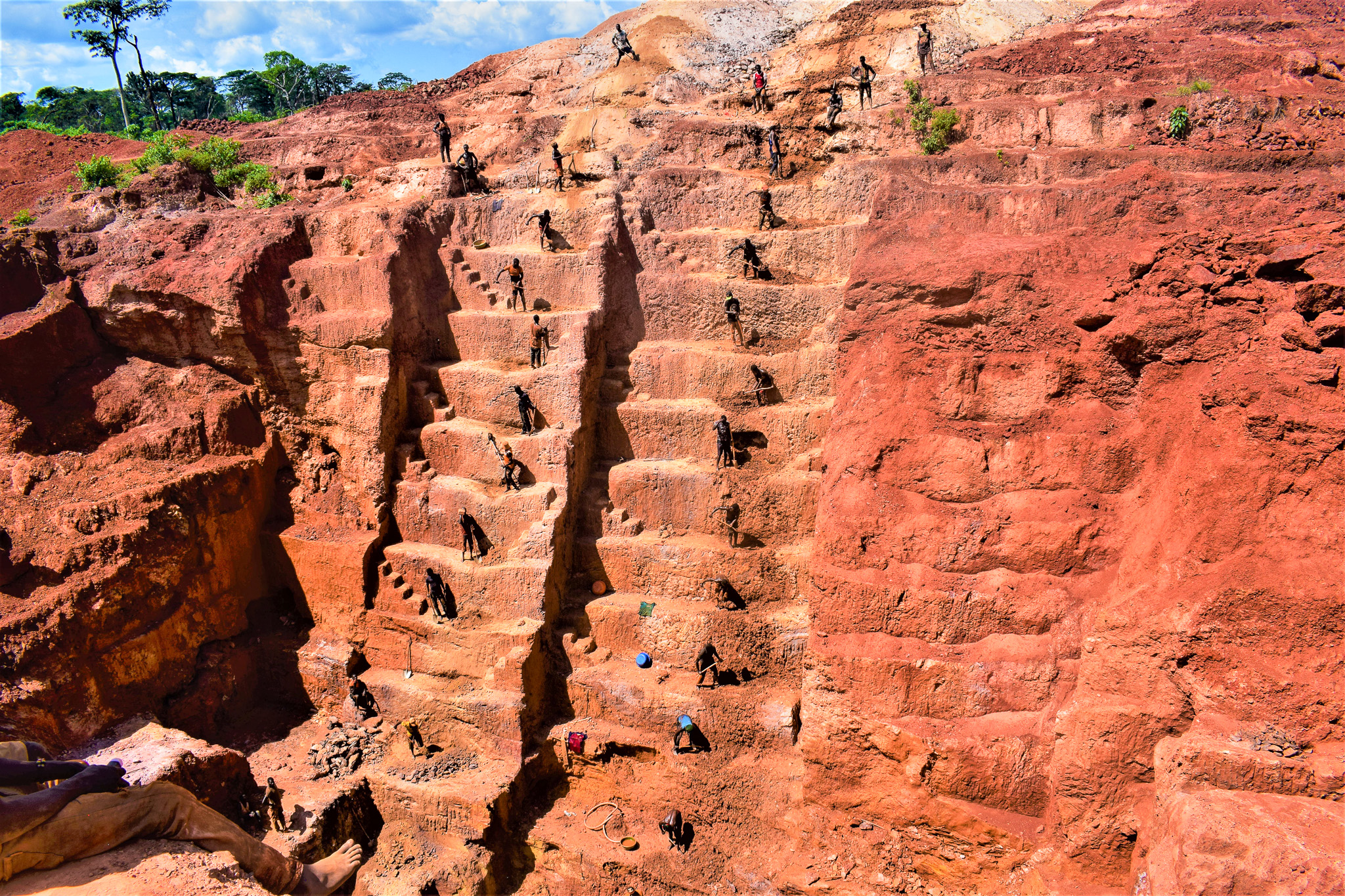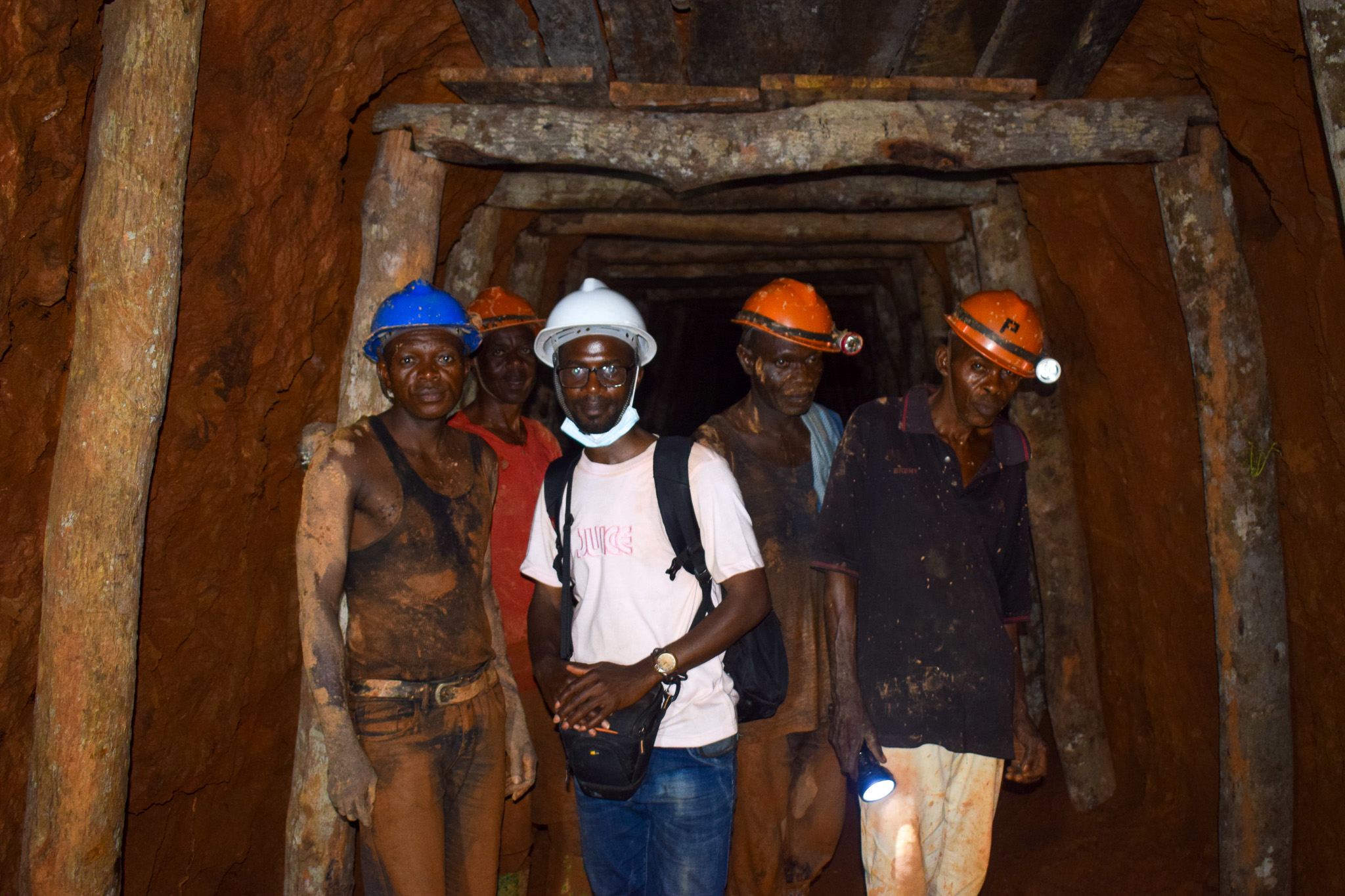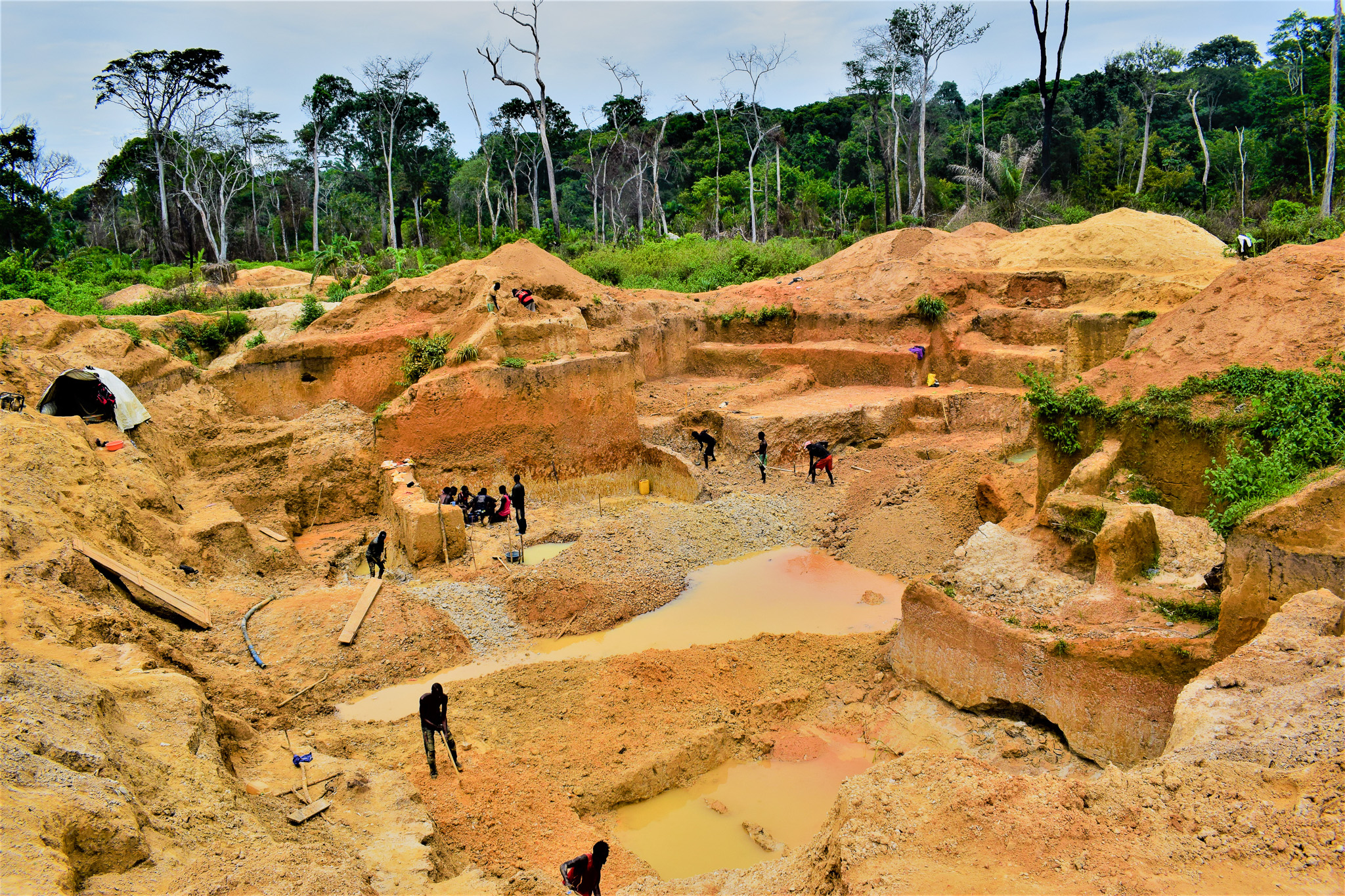Gold, Biodiversity, and the Future of Bili-Uéré: Confronting the Toll of Artisanal Mining in DRC

Maimoke mining square
In the remote Bili-Uéré Hunting Domain of northeastern Democratic Republic of Congo, endangered eastern chimpanzees roam ancient forests, elephants migrate along age-old paths — and thousands of artisanal gold miners dig into the same fragile ground. This protected landscape, part of the Bili-Mbomu complex, is a critical stronghold for biodiversity. Yet more than 10,000 miners work across 49 sites, including deep within core conservation zones, accelerating deforestation, polluting rivers, and pushing wildlife to the brink.
The African Wildlife Foundation (AWF) is working to change this trajectory. Through science-driven research, community partnerships, and stronger governance, AWF is helping chart a path where local livelihoods and biodiversity can both thrive.

AWF consultants collecting data in the Lisala Kule mining square
The Bili-Uéré Hunting Domain is one of the DRC’s last intact ecosystems, sheltering globally important wildlife and forming a vital part of the Congo Basin forest. But artisanal and small-scale gold mining has become a dominant force in the region, creating unprecedented environmental, social, and governance challenges. AWF’s conservation approach here is grounded in the belief that communities must lead in shaping their landscapes, that science should guide decision-making, and that economic strategies must provide sustainable alternatives to destructive practices.
Mining in Bili-Uéré has unleashed a cascade of ecological damage. Forests are cleared for camps, open pits, logging, and slash-and-burn farming. The noise of chainsaws, crushers, vehicles, and human activity drives away wildlife, forcing elephants and chimpanzees to abandon their ranges. Over time, these pressures strip the land of its ability to regenerate. Soil degradation is severe, with unfilled mining pits triggering erosion, landslides, and flooding, leaving vast areas sterile. Rivers are polluted with mercury, acid drainage, and waste, threatening aquatic species and endangering the health of communities that depend on these waterways.
For miners like Ndonda Bolongo, who has worked in the Lisala quarry for 27 years, the transformation is stark. “The forest is full of holes — no longer fit for animals or farming,” he says. “We’ve turned the soil upside down. Even the palms of our hands crack from the strain. We suffer enormously.”

Lisala Mining Square
While laws prohibit mining in protected areas, weak enforcement and contradictory regulations allow operations to continue. Provincial decrees sometimes undermine national legislation, and most miners work without formal authorization. Oversight is minimal, with too few eco-guards to patrol vast territories and magistrates lacking the training to prosecute environmental crimes. Mineral supply chains remain opaque, and corruption further undermines accountability. In many cases, roadside checkpoints prioritize fee collection over compliance monitoring. Without participatory land-use planning, disputes between communities, cooperatives, diggers, and authorities flare frequently.
These tensions are compounded by economic realities. Artisanal mining is seen as a lifeline, but its benefits are uneven. Traders and cooperatives often reap the greatest profits, while diggers remain poorly paid, heavily exploited, and trapped in informal economies. Local communities see little reinvestment in infrastructure or services, as most profits leave the region. Yet for many miners, the work, however grueling, is a source of pride and survival. Anange Guado, who works in the same quarry as Ndonda, uses his earnings to send his children to school in Kisangani and build a modest home. Still, he fears displacement if the area is returned to full park status. “If this becomes a park again, where will we go? This forest is full of diggers. Our lives depend on it,” he says.
Raising awareness among community leaders in Bondo territory about the impact of artisanal mining on the ecosystem.
To address these challenges, AWF commissioned a study that recommends a combination of environmental restoration, worker safety improvements, and governance reform. It calls for better waste and water management, the rehabilitation of abandoned pits, and the reforestation of degraded areas with fast-growing native species. It urges training for artisanal loggers in sustainable practices, the formalization of mining operations, and the creation of mineral traceability systems to curb smuggling. Strengthening eco-guard capacity, enforcing conservation laws, and ensuring transparency in tax and royalty payments are also critical steps.
Artisanal mining in Bili-Uéré can no longer be treated as a marginal activity. It is a central force shaping the future of this landscape — for better or worse. If bold, coordinated action is taken now, Bili-Uéré could become a model for coexistence between extraction and regeneration, between gold and life. Without it, the loss will be irreversible.
Read more about how AWF is working with African Governments to balance conservation and development.